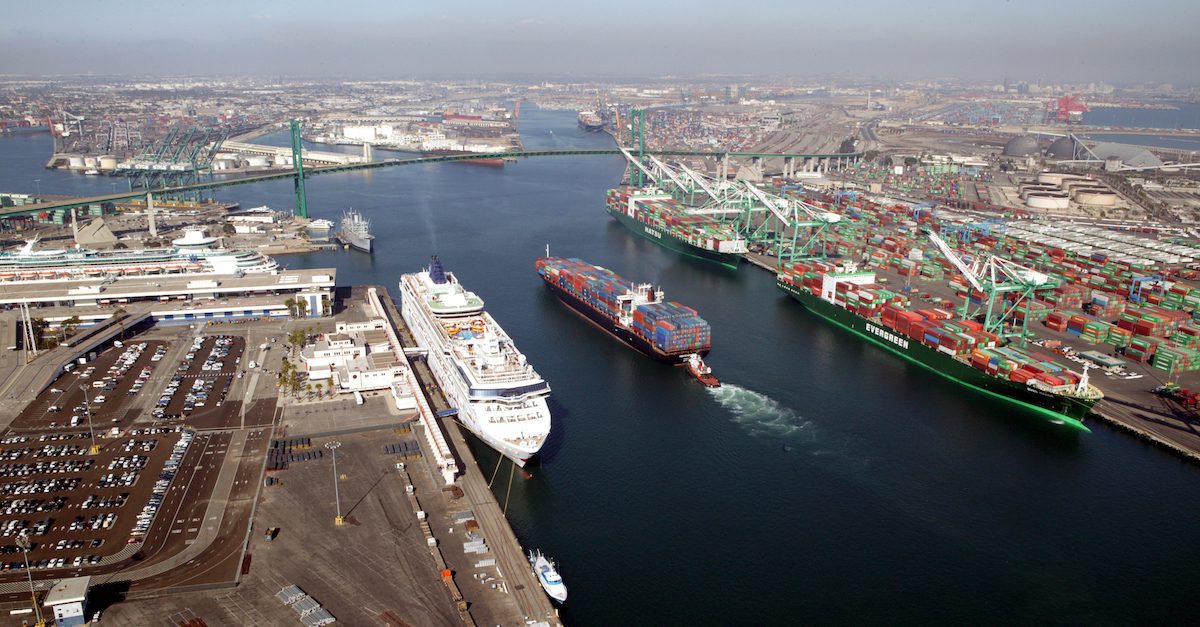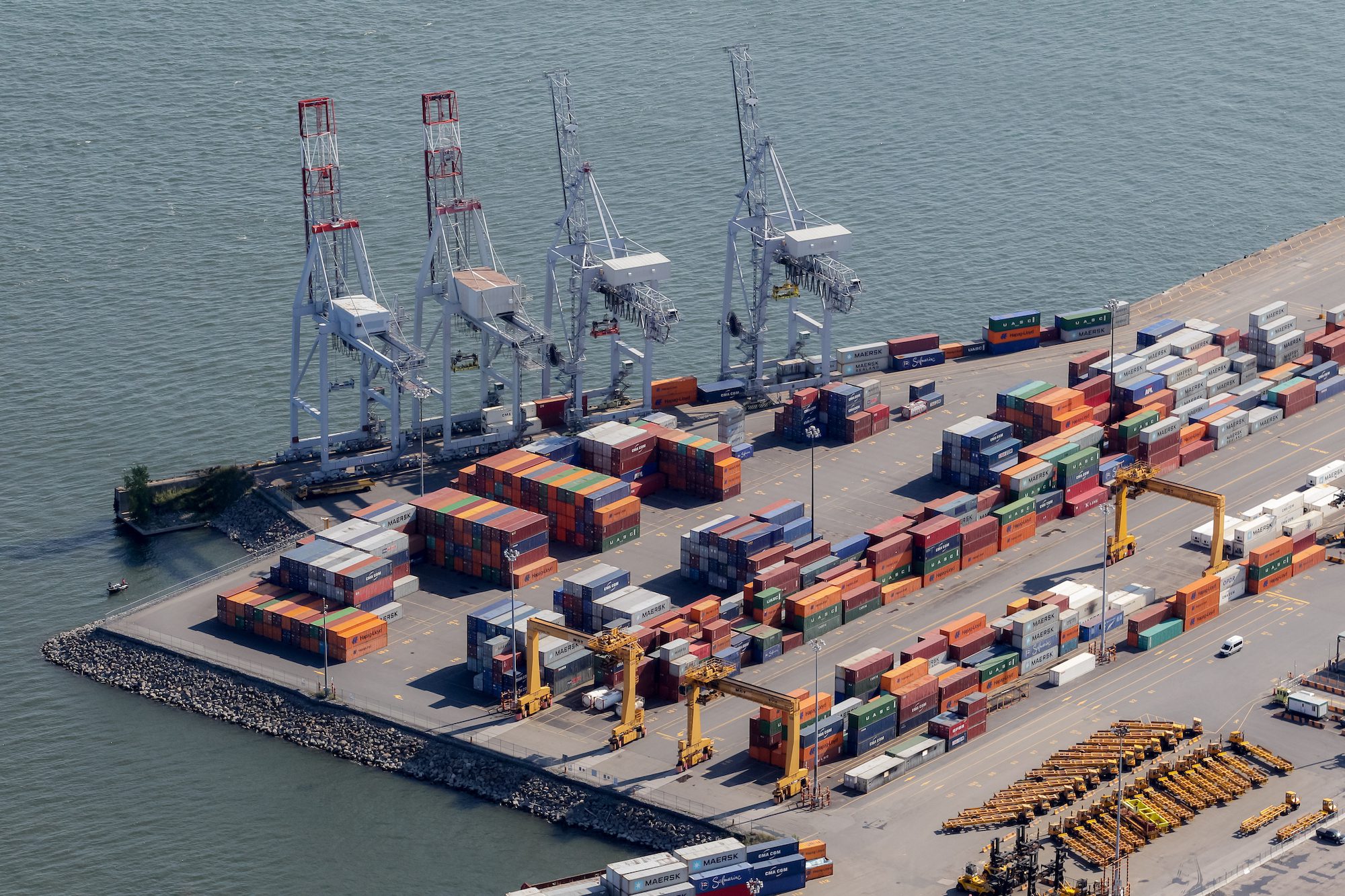Containership arrives at the Port of Los Angeles. File photo: Port of Los Angeles
By Saleha Mohsin and Ye Xie (Bloomberg) — China’s maturing economy needs to further open markets to American investors and exporters so they can compete on equal footing, U.S. Commerce Secretary Wilbur Ross said.
“There remains serious imbalances which we must work to rectify,” Ross said at an event in Washington on Tuesday organized by the U.S.-China Business Council. “It is time to rebalance our trade and investment relationship in a more fair, equitable and reciprocal direction.”
Ross spoke at the event along with Treasury Secretary Steven Mnuchin and Chinese Vice Premier Wang Yang, in the lead-up to the U.S.-China Comprehensive Economic Dialogue, or CED, in Washington on Wednesday. The forum for economic and trade talks was created in April when President Donald Trump met his Chinese counterpart Xi Jinping in Florida, and agreed to a 100-day action plan. China re-opened its markets to U.S. beef as a result, and pledged to buy American liquefied natural gas and give U.S. firms greater access to its financial services sector.
The CED is seen as a new forum to smooth tensions following Trump’s rhetoric on the campaign trail about getting tough on China’s trading practices. Mnuchin on Tuesday said the U.S. wants to use the discussions to push China on lifting foreign ownership restrictions on the financial services industry and remove hurdles for information and technology sectors.
“China is in the midst of a change to a more sustainable growth model,” said Mnuchin. “We still have work to do with China to achieve a balanced relationship” that is based on reciprocity.
‘Climb Higher’
The Chinese government has been giving market-oriented policies a larger role in the economy, moving away from a state-led model, with a goal to achieve 6.5 percent average economic growth in the five years through 2020.
“The Chinese economy will continue to grow at medium-high speed and climb higher on the value chain, as China’s traditional industries are transformed and upgraded at a faster pace and emerging industries flourish,” Wang said in a speech at the event on Tuesday in Washington.
While Trump built a positive rapport with Xi during the April meeting at his Mar-a-Lago resort in Florida, there are signs of growing friction as the U.S. pushes China to rein in North Korea’s nuclear threat. The U.S. president in June said China hadn’t done enough to control North Korea and its nuclear weapons program, though he appeared to brush over differences over North Korea and trade during the Group of 20 meeting earlier this month.
Mnuchin last month took steps to penalize a Chinese bank, a Chinese shipping company and two Chinese citizens to reduce North Korea’s access to the international financial system. Mnuchin said at the time that the measures were “in no way targeting China” but instead focused on “North Korea’s external enablers.”
The sanctions provoked a furious response from China, with a foreign ministry spokesman saying the measures violated understandings reached during the Mar-a-Lago meetings. The U.S. has been stepping up pressure after North Korea on July 4 said it successfully test-fired an intercontinental ballistic missile.
Back Burner
While Trump has put trade tensions on the back burner — at least publicly — if his patience runs out on China he could revive his threat of escalating trade spats.
The administration has decisions pending on the national security implications of importing steel and aluminum, as it blames China for creating excess capacity with production of the metals at record highs. Trump has said that China and other nations are “dumping steel and destroying our steel industry, they’ve been doing it for decades, and I’m stopping it. It’ll stop.”
Wednesday’s CED replaces the Strategic and Economic Dialogue, which was formalized during the Obama administration, and the longstanding Joint Commission on Commerce and Trade. Both have drawn criticism for involving too many people and producing too few results.
Ross downplayed any friction on Tuesday, saying the U.S.-China relationship is better today than in many decades and the countries have “fundamentally shared objectives.”
The Trump administration wants to pursue with China “deliverables” by specific dates so the results are measurable, he added.
© 2017 Bloomberg L.P

 Join The Club
Join The Club











